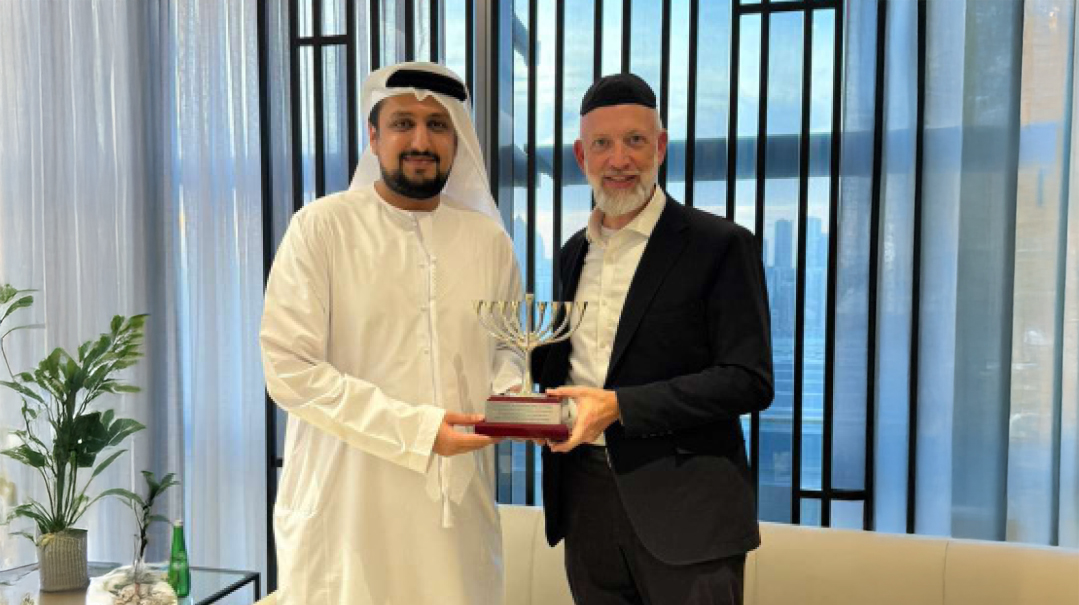The Maggid’s Message: Tefillah
| February 11, 2025“Since my stroke, I have gained a profound understanding of the depth of certain tefillos”

Rabbi Paysach Krohn, as told to Rabbi Moshe Dov Heber
A
few weeks ago, I had the zechus to collaborate with my grandfather, Rabbi Paysach Krohn, on an inspirational article about bikur cholim, drawing on his personal experiences after his stroke. Many people reached out to express how deeply they were moved by his story. In this article, we highlight how these experiences have given him a new and unique perspective on tefillah.
The Me’iri’s introduction to Maseches Berachos presents a profound insight into the purpose of life’s experiences. He writes, “A person must give thought to every unique occasion that transpires in his life and ask himself, ‘Why did Hashem make me experience this? What can I take from it?’ ” This is not just a call for reflection, but an invitation to see every moment as an opportunity for personal growth and spiritual advancement.
The Me’iri emphasizes that whether facing joy or sorrow, one should always seek to understand how it’s possible to grow from the experience. For instance, he compares a person who observes the mitzvos superficially without being shaped and elevated by them to a donkey that carries wheat in the wheat season, barley in the barley season, and oats in the oat season.
In all cases, he remains unchanged, missing the deeper purpose. The Me’iri teaches that just as the donkey does not grow, neither does the person who engages with life’s events without seeking to learn and grow from them.
Thus, the Me’iri urges us to see every moment, every Yom Tov, and every challenge as an opportunity for transformation. We should constantly be asking, “What can I take from this?” so that we can grow closer to Hashem and elevate our lives.
Since my stroke, I have gained a profound understanding of the depth of certain tefillos that, in the past, I may have recited without fully appreciating their meaning. Going through this transformative experience has shed light on words I’ve said thousands of times. Now, they jump out at me with newfound significance. Each tefillah has given me a deeper connection to Hashem, and I feel I am truly engaging with the words in a way I never did before. This is especially true for the morning brachos.
Matir asurim — “Who frees those who are tied.” I always understood the basic meaning of this brachah: that we are not ultimately in control of our bodies; it is as if we are tied up. Hashem grants us power over our bodies when we wake up. On a deeper level, being “tied up” refers to individuals who are ill and unable to perform their usual tasks.
But after my stroke, I realized something else. One is tied up when he is seriously ill, recovering from a major illness, or going through a challenging situation — but his entire family is, in a sense, tied up as well. Their schedules and lives revolve around caring for the one who needs them. Each morning, we should thank Hashem for the freedom He grants us — the ability to create our own schedule and not be bound by overwhelming needs.
Zokef kefufim — “Who straightens the bent-over.” This brachah is referring to the body as a whole, but also to all of our limbs, each of which is necessary for even the most basic tasks. Did I ever fully appreciate the extent to which all the parts of the body must work in harmony? Fastening a seat belt requires the full use of my arms and hands, as well as hand-eye coordination. Tasks that once seemed effortless suddenly became deeply valued. Now, each day when I recite this brachah, I reflect on all the limbs that must function properly — fingers, toes, and everything in between.
Each day, as I undergo therapy to recover, I learn more about how Hashem has fashioned our limbs to work together in perfect harmony. How can we take for granted the ability to walk, or to speak, or to breathe? These are such fundamental blessings, yet we often overlook them.
During my exercises, I often use pesukim that have as many words as the number of motions I’m supposed to perform. For example, if I’m asked to move my fingers seven times, I would say the pasuk “Poseiach es yadecha,” or “Hodu l’Hashem ki tov,” each of which has seven words. This helps me connect every action in therapy to my service of Hashem. It reminds me that the purpose of my healing is ultimately to serve Him.
One of the praises we offer Hashem in Birchos Krias Shema is “Borei refuos,” which is phrased in the present tense. This reminds us that Hashem doesn’t simply initiate our healing at a certain point and then leave us to run on autopilot, so to speak. Rather, at every moment, He is actively involved in our health. We must never take even a single moment of wellness for granted, as it is through Hashem’s ongoing involvement that we are able to function and thrive.
Over the years, I’ve often emphasized the profound power of having your own siddur. I encourage people to make it personal — underline the phrases that resonate with you, connect with the words in a deeper, more meaningful way. My own siddur has become much more than just a prayerbook; it’s my closest companion, something I turn to time and again throughout each day. It’s never too late to start. No matter where you are in life, having a personal siddur is truly transformative.
I feel fortunate that, even before my stroke, my siddur had already become that companion. That deep connection has become so much more important to me now. That constant source of strength and connection has stood me in good stead through this process. I encourage you to consider personalizing your own siddur — it’s a powerful tool that can bring tremendous comfort and inspiration. You’ll soon wonder how you ever davened without it.
Although these have not been the easiest times in my life, I am so thankful for everything that Hashem has given and continues to give me. How could we ever truly thank Hashem for the life He provides us with each and every day? The truth is, we have countless opportunities in tefillah to express our gratitude, but for me, one moment stands out.
In Pesukei D’zimra, we recite Mizmor l’sodah, a kapitel brimming with thanks to Hashem. I am working on memorizing it so that it flows smoothly from my lips, enabling me to constantly express my gratitude to the Borei Olam. I believe it is no coincidence that Mizmor l’sodah is kapitel 100 — it reminds us that we must thank Hashem 100 percent of the time. This chapter serves as a powerful reminder to express our gratitude to Hashem continuously, with full acknowledgment of His constant kindness and presence in our lives.
We should never, chas v’shalom, allow difficult periods to be the only time we reflect on the good Hashem has bestowed on us. We must take the opportunity to be truly grateful for everything we have during good times. How often do we pause and take a moment to do that? You can sit down right now and make a list of all the blessings you have in your life.
There is so much goodness around us, and we need to focus on that rather than the negatives. Life can be an incredibly meaningful experience, even in difficult times, if we recognize that Hashem, our dear Father, is in charge, and that everything He does is for our ultimate good.
All of the tefillos that have been said on my behalf have made a tremendous difference in my recovery. I deeply appreciate each and every prayer, and you should never underestimate the power of each word. Please continue to daven for me, Paysach Yosef ben Hinda, as I continue on my journey to recovery.
(Originally featured in Mishpacha, Issue 1049)
Oops! We could not locate your form.







